Using a Leaf Blower Too Early Doesn't Just Bother Neighbors, It May Be Against the Law – Here's How to Avoid Trouble
Be a kind and courteous this fall. Don't blow leaves outside of these hours to keep neighbors happy and keep yourself out of trouble.

Laura Walters
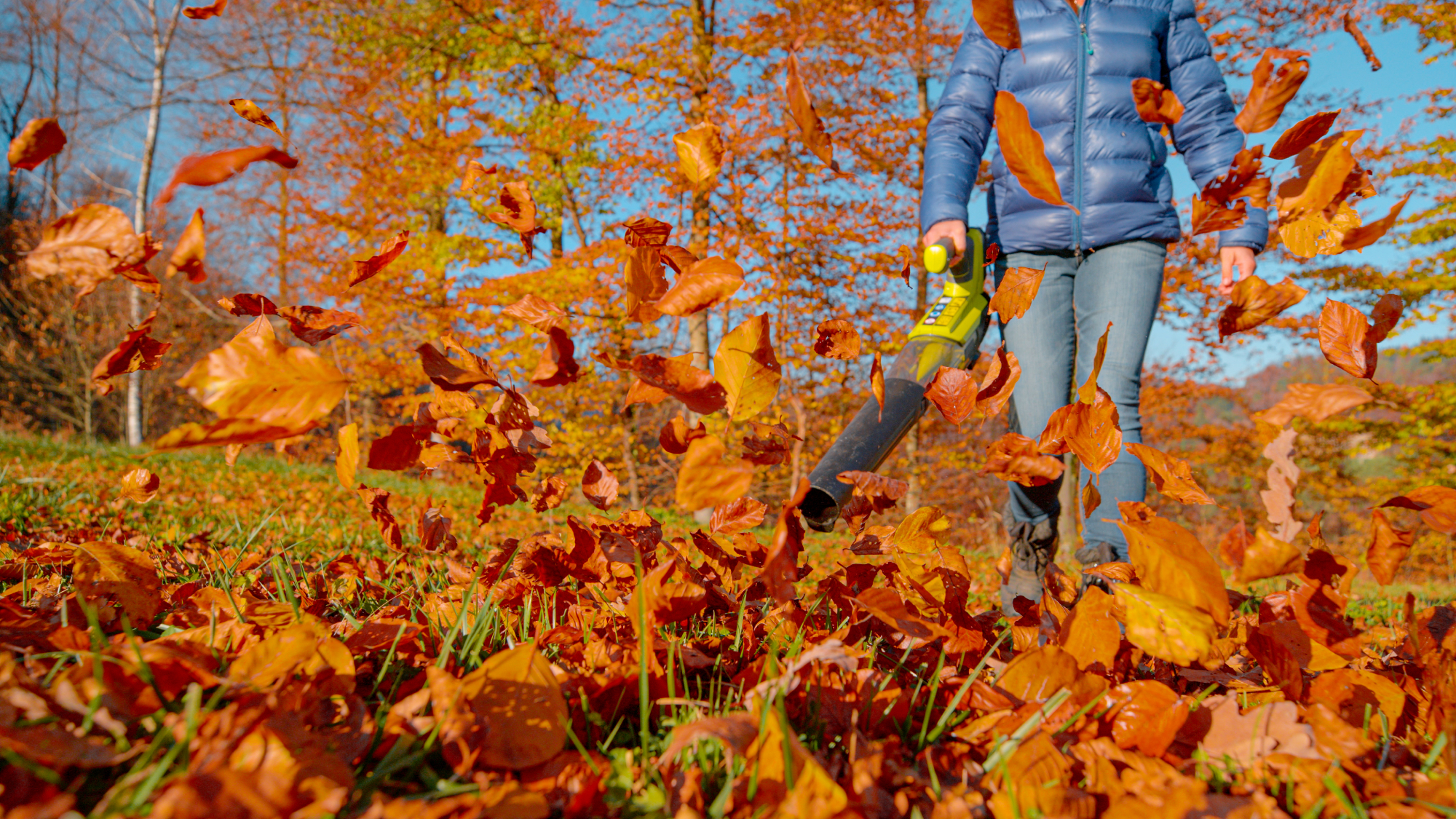
Sign up for the Gardening Know How newsletter today and receive a free copy of our e-book "How to Grow Delicious Tomatoes".
You are now subscribed
Your newsletter sign-up was successful
Leaf blowers are oh so convenient. You can help you make grass clippings disappear quickly, round up fallen leaves like cattle, and all without getting your hands dirty. But these machines can also tick off neighbors, especially if you use them at the wrong time of day or night.
As we all know, using a leaf blower to clean up fall leaves can be extremely noisy. So it’s best to consider your neighbors before breaking out the blower at the crack of dawn. But it goes beyond just being a good neighbor in your garden. Using a leaf blower at the wrong time may actually be illegal, depending on where you live.
That's why it's important to follow some basic etiquette rules when using one of these loud, yet very useful, gardening tools. So what are the basic leaf blowing rules? How early can you use a leaf blower and what’s the best way to do it? I'll walk you through some tips to use your leaf blower politely, effectively, and offer some less disruptive alternatives.
How to Use a Leaf Blower Properly
Before we get into what the polite timing for leaf blowing is, let’s first review the ins and outs of cleaning up the leaves with a blower. Incorrect use cannot only hurt you, but it can also make life difficult for your neighbors.
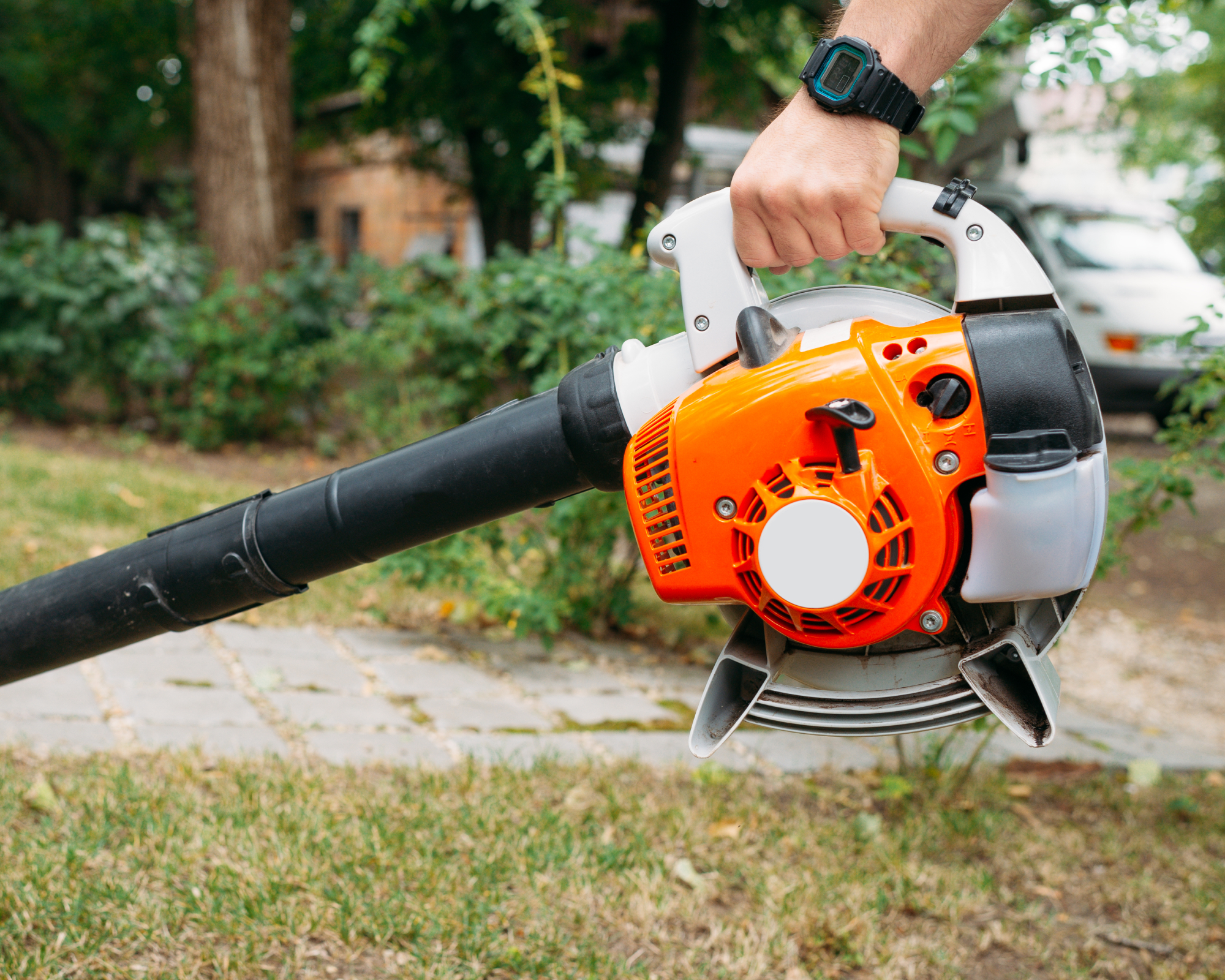
1. Choose the Right Leaf Blower
First, pick the least noisy leaf blower that will fit your purpose. It’s ridiculous and impolite for someone with a tiny yard to blast out their fallen leaves with a big, noisy, gas-powered lawn tool.
Ideally, pick an electric blower to avoid the big noise and harmful fumes. Battery-powered lawn tools are not only quieter for your neighbors, they but also help you because you don't have to deal with the mess of mixing of gasoline and oil.
This battery-powered leaf blower from Amazon is one of the quietest options out there and it can blow up to 180 MPH. That's more than enough power to tear through a big lawn full of leaves and any other yard waste you might encounter this fall.
Sign up for the Gardening Know How newsletter today and receive a free copy of our e-book "How to Grow Delicious Tomatoes".
2. Control Where You Blow
Is the wind blowing? Blow your leaves in the same direction that the breeze blows. It’ll boost your progress and also prevent those leaves from blowing into your neighbor's yard or the shared sidewalk space or street.
Also, blow the air close to the ground in order to work more precisely. Just point the blower “nose” down and work in one small area at a time. Tilting the tip of the blower down also helps avoid blowing dust around.
Never use a leaf blower to remove dirt and dust, particularly not cement dust. Blowing dirt can make a mess for your neighbors and make it harder for you to breathe, too.
3. Work Smarter, Not Harder
What's good for your neighbors is often what's also good for you. If you work smarter, rather than harder, it can make blowing the leaves a lot more convenient for you and lot less annoying for your neighbors.
Wait until leaves dry before blowing them anywhere. Blowing wet leaves or grass cuttings requires a lot more effort (and a lot more noise) than trying to clean up dry garden litter.
Pick up the yard detritus as you go, too. It may be tempting to wait until the end of the project to limit your bending. But one big puff of wind, and your efforts have been wasted and you'll have to start over and keep the noise going. A leaf bag, like one of these from Amazon, makes it easy to haul smaller piles of leaves to the curb.
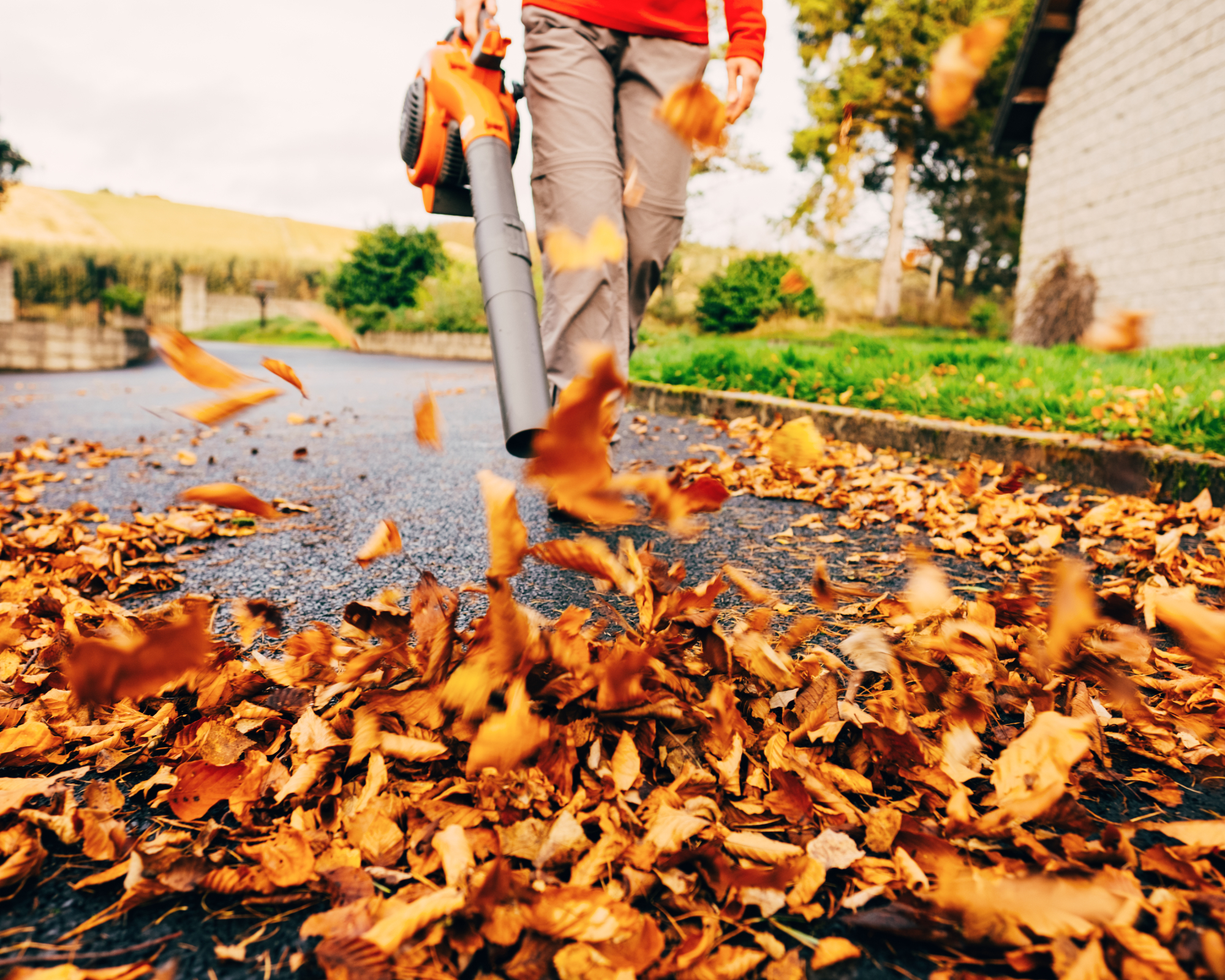
Laws About Leaf Blowers
In addition to etiquette rules, you also need to be aware if there are any legal repercussions to your leaf blowing. To block sound from noisy neighbors, some jurisdictions do regulate the times you can use leaf blowers as well as the size and type of leaf blowers allowed. There may be state laws, county laws, municipal laws, and even homeowner association laws, so check before you blow.
While laws will differ, generally “quiet time” laws prohibit noise before 7 or 8 a.m. and after 9 or 10 p.m. There may also be laws restricting the size and type of leaf blower, often including restrictions on the use of gas-powered blowers and blowers that emit noise above a given decibel level.
What if your neighbor is the one causing that problem, like when a neighbor's overgrow hedge is encroaching on your yard? Are you able to sue your neighbors if their leaves fall on your property? Generally, the answer is no. So call off your lawyers.
Nor is it okay to dump the leaves back on your neighbor's property. Though there are few laws specifically forbidding using leaf blowers to do so, it’s not a great idea when it comes to being a thoughtful and respectful neighbor—even if they started it. I use this rule: let fallen leaves lie.
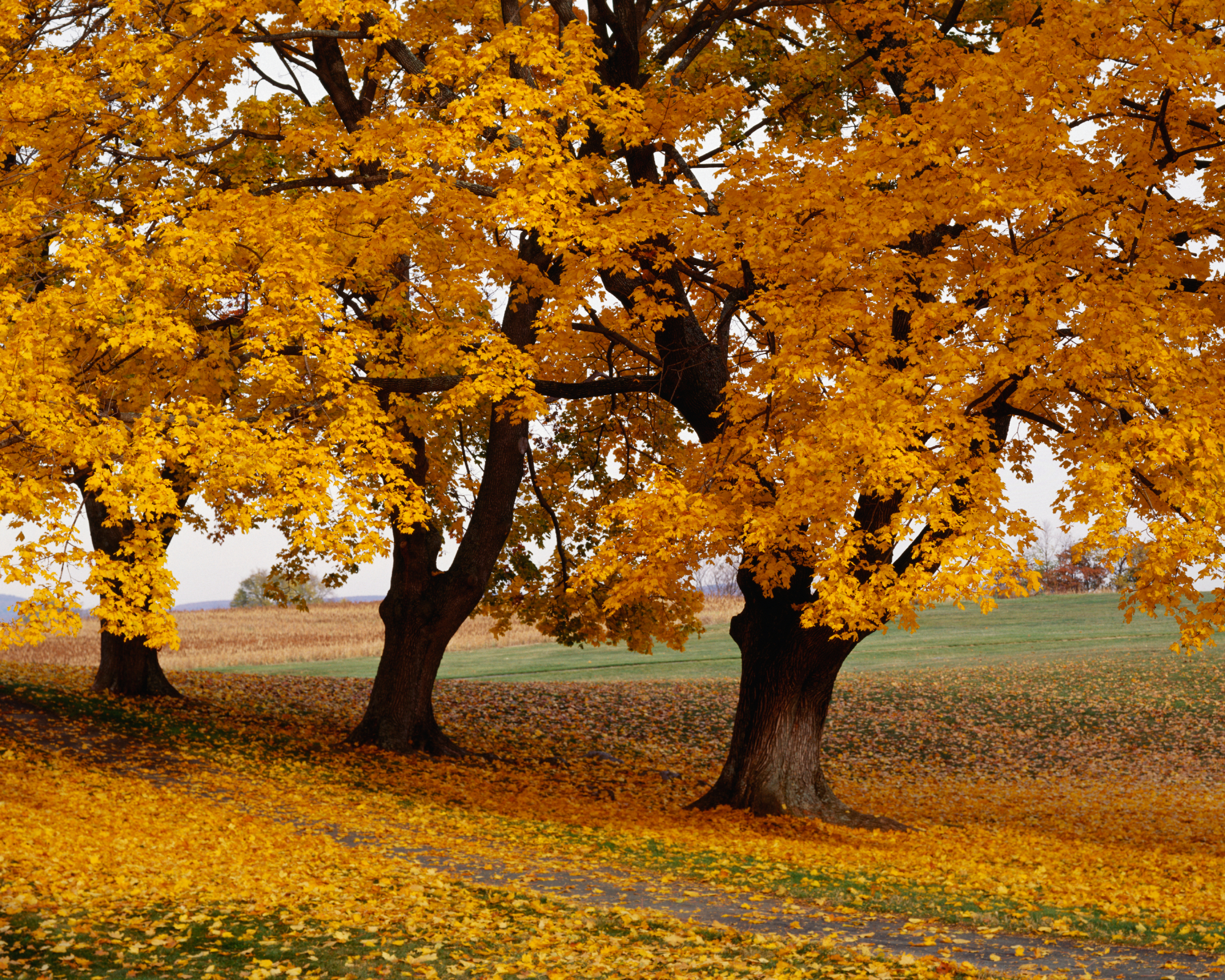
What Time Can I Use a Leaf Blower?
In theory, it is possible for a person to use a leaf blower all day and all night long. However, if you violate any applicable laws, you may get fined or even pulled in on a misdemeanor.
And despite any legal problems you may incur, it's always better to be on good terms with the people who live around you. So be kind and considerate when deciding what time to blow the leaves.
Using a leaf blower early in the morning is almost certain to annoy neighbors, especially on weekends. Consider what time you would want a neighbor to use their leaf blower and how you would feel if they decided to work outside those hours. Generally, starting at 9 a.m. or later is appropriate. However, if a neighbor approaches you with a request to start later, graciously agree with this.
As for nighttime leaf blowing, keep it early enough that you won't disturb people who go to bed early or who have young children who go to sleep earlier than most adults. Stop blowing the leaves by 9 p.m. or earlier to bother the least neighbors. Blowing leaves any later (or even that late) is often difficult because it's dark in many growing zones by then in the fall.
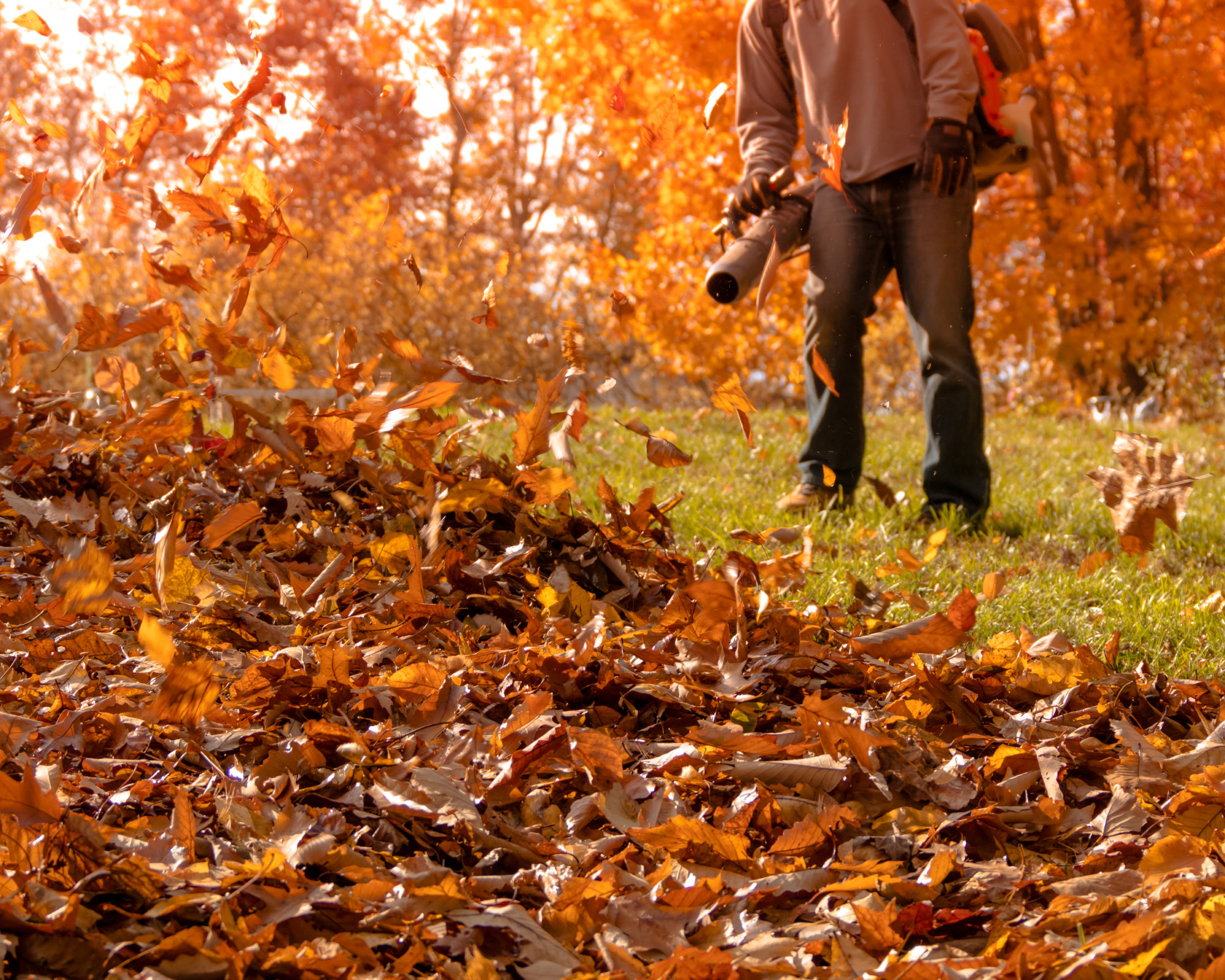
Less Disruptive Leaf Blower Alternatives
Many of us with backyard gardens don’t use leaf blowers. I personally don’t like the noise and I also like to use the garden waste for compost or mulch. In addition, I keep a “natural” garden, where flowered areas meld easily into wilder areas. I prefer to grow a meadow instead of a lawn and wildflowers instead of neat rows of rose bushes.
If you're looking for a noise-free leaf blower alternative, try a good old-fashioned rake, like one of these from Amazon. If you rake up leaves and grass clippings and allow them to dry, they make great additions to the compost.
Alternatively, just leave the leaves and let them lie where they land. This works best in rural areas and is a tactic I employ on my land in France. In San Francisco, I rake and remove because I'm glad to get a bit more exercise in the garden there.

Teo Spengler is a master gardener and a docent at the San Francisco Botanical Garden, where she hosts public tours. She has studied horticulture and written about nature, trees, plants, and gardening for more than two decades, following a career as an attorney and legal writer. Her extended family includes some 30 houseplants and hundreds of outdoor plants, including 250 trees, which are her main passion. Spengler currently splits her life between San Francisco and the French Basque Country, though she was raised in Alaska, giving her experience of gardening in a range of climates.
- Laura WaltersContent Editor